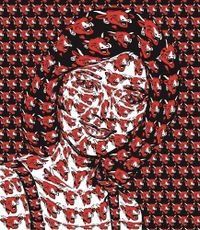
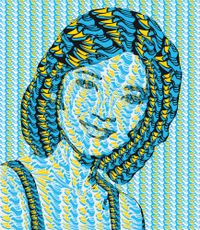
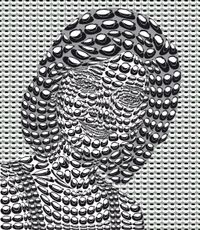
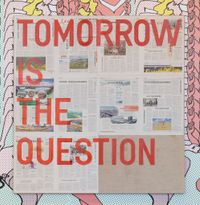
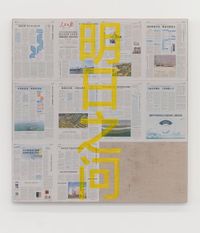
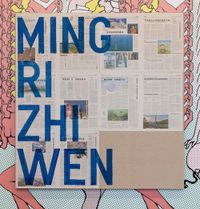
Gladstone Gallery is pleased to participate in Gallery Weekend Beijing for a second year, with a special presentation of new works by Rirkrit Tiravanija and Thomas Bayrle. The Gallery's project will be set inside a historic building in the 798 Art District in Beijing. The artists found inspiration in the historical importance of the Joint Factory 718 which was built with the help from East Germany for the People's Republic of China in the 1950s. Developed by the Germans, these factories were created with a functional Bauhaus-influenced design complete with large indoor spaces that prioritise form following function. These buildings originally oversaw the electronics industry, and the building Gladstone is exhibiting in is located on Speaker Road, an area that used to produce sound systems used in public spaces.
Thai artist Rirkrit Tiravanija, whose practice has constantly challenged the paradigm of art, will present a series of works that reveal the boundaries between life and art to be an illusion. Ping pong tables are spread across the exhibition space inscribed with the phrase, 'Tomorrow is the question' in Chinese, Chinese Pinyin, and English. These works were previously shown at Gavin Brown's Enterprise in 2013, at the Centre Pompidou and Garage Museum in Moscow in 2015. The artist invites the public to participate in the work, an experience that the artist and viewer can engage in together. This references Julius Koller's long term J.K. Ping-Pong Club (U.F.O.) (1970–2007). The social interaction that the artist pursues with this project has many other historical references, including a 1971 Cold War era ping pong tournament between US and Chinese players. Tiravanija will also present text paintings with the same slogan, 'Tomorrow is the question' in Chinese, Chinese Pinyin, and English, painted directly on top of People's Daily, the official state newspaper in China.
Following the organiser's theme of sharing in this edition of Gallery Weekend Beijing, Tiravanija's works will be presented alongside his close friend at the Städelschule in Frankfurt, German artist Thomas Bayrle. Bayrle came out of Germany in the 1960s, a contradictory time in history. Today, his work continues to investigate the notions of mass production and consumerism and its larger relationship to culture. For this presentation, Bayrle will debut for the first-time wallpaper works that he had created in the 1970s. The wallpaper works depict dancers whose limbs are repeated up the walls. Overlaid on top are portraits of Teresa Teng, the singer who is widely known as Asia's singing queen. During the 70s and 80s, music reached listeners in mainland China, Hong Kong, Taiwan, Japan, Malaysia, Singapore, Indonesia, as well as Chinese-speaking diasporas all over the world
Press release courtesy Gladstone Gallery.
798 Art Zone